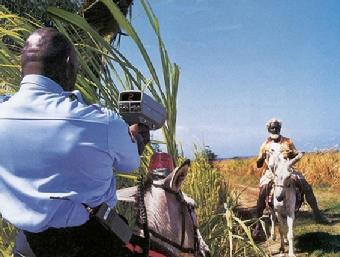HOW TO HANDLE A DWI / DUI TRAFFIC STOP, AND ALSO THE COP


IT’S A POLICE STATE.
THE COPS ARE EVERYWHERE.
Yes, the Cops are everywhere; and they are waiting to stop you! Any excuse will be used to stop your vehicle. Speeding or driving without your lights at night are sure ways to get stopped; but the Police State Goverment that we currently live under will use any pretext available to make a stop. If it is late at night, or if you are driving in an area where bars or night clubs are located, the grounds for stop become less and less, including things like an expired tag, or even a burned out license plate lamp. Sometimes, for no reason at all. Cops often follow vehicles leaving bars, and will look for the slightest reason to pull you over. It is a sad truth that in the United States the greatest percentage of money available for Law enforcement is focused on Drug and Alcohol violations. Visit a DWI road block some evening, preferably on a bicycle, and see for yourself. With the lowering of the legal limit for blood alcohol in Missouri, and many other states, to .08, even the responsible driver who limited his or her consumption to a couple of glasses of wine with dinner is now at risk.

You can run; but you can’t hide.
The following is intended as a general guide. IF THE UNFORTUNATE DAY EVER COMES when you see the red lights circling overhead from the new Police Cobra Attack helicopter (paid for from DWI arrrests, vehicle seizures and fines) after having had a Pint or two at the local Pub, this is what you need to know.
First, unless you already have an outstanding warrrant, and are facing a life sentence for something like growing pot in your back yard, then DON’T RUN! Are you not convinced? The Police Cobra comes equiped with (among other things) HELLFIRE missles, a Rocket launcher, and a 3 Barrel 20 MM Automatic Gatling gun with armor piercing incendiary bullets. Most importantly, THEY (all police vehicles) HAVE A RADIO. Now, assuming that you have pulled over (without any unreasonable delay) and have parked your car, turn off the engine and take the keys out of the ignition. Just set them in the car seat. DO NOT GET OUT OF THE CAR, unless requested to do so. If you do, it will only help the officer quickly see how wasted you really are, and make it even more easy for her to smell the reason you never amounted to anything anyway.
Lets assume that you have been stopped; and that you have also been drinking. You basically have two ways to handle the situation. First, ask yourself the obvious question. Could you pass the tests. By that, I mean both the field sobriety tests and the chemical test. If you know you would be under the legal limit of .08 (for an adult) then cooperation is generally the best approach. This is not the time to refuse the chemical test and risk losing your license for a year for a refusal suspension, when you would have passed the test anyway, just because it’s your right to refuse. If you were lucky enough to get stopped by a decent officer (meaning one who realizes that being legal includes being under the legal limit, and not just total abstinence), he or she may send you on down the road.
Moving up the scale of intoxication (risk), lets say you are not sure; but that you feel certain you are borderline or just barely over the legal limit. In this situation, two other issues must be considered. First, would this be a first offense, or do you have prior convictions, and, if so, how old are they? Second, have you ever (in your whole life, anywhere in the universe) ever refused a chemical test before? We’ll start with the Refusal issue. A special provision under Missouri law, is a little known clause dealing with elgibility for a Hardship license, which states that if you have refused a chemical test more than once, you will never be elgible for a Hardship license, ever! You have the right to refuse, but the statutes are designed to hammer you for exercising the right. So, if it’s the second refusal, then there goes your license for a year, and you can forget about getting a Hardship license. On the other side of the scale is the evidence you will provide to the government by testing. Currently, .08% B.A.C. creates a prima facia case (presumption under the law) of being legally intoxicated. So, in this corner, if you take the chemical test and fail it, you get charged criminally with DWI, and because you tested .08 or more, you also receive a separate civil penalty from the MO. Dept. of Revenue, called an Administrative suspension. The Administrative suspension is for 30 days, followed by a 60 day period where you can drive for limited purposes; unless your driving record shows a prior alcohol enforcement contact within the preceding 5 years, in which case the Administrative suspension is for 1 year. In the other corner, if you refuse the chemical test, it’s an automatic revocation for 1 year for the refusal, even if you don’t have any prior alcohol enforcement contacts. (For further info. see License Suspensions page). The Refusal suspension is also a separate civil penalty. Damned if you do, and damned if you don’t.
Remember also, that even if you refuse the chemical test, the officer can still write you a ticket for DWI. As an Attorney, in the last 18 years of handling DWI cases, I can only remember 1 case where a client who was written up for a chemical test refusal, was not also cited for the DWI. If a chemical test refusal and the resulting lack of that evidence meant you could not be charged and/or later convicted, then no one would ever take the test. Unfortunately, it doesn’t work that way in most cases. Where there is no chemical test, and a person is charged with DWI anyway, as they usually are, then if the case goes to trial, the government has to try to prove their case based on other evidence. This usually means the officer’s testimony, as to what he observed as to the defendant’s driving, and the physical and mental condition of the defendant after the stop. In some cases, it may also include other physical evidence, and perhaps even the testimony of non-government witnesses.
From the moment the cop sees you leave the bar, or starts following your vehicle, he begins building the government’s case against you. First, they will note every detail of your driving, as well as the legality of your vehicle. After they find a reason to pull you over, their observations are then focused on you. The cops use a checklist for everything. The average length of a set of Offense reports generated by a cop following a typical DWI arrest, is 15 -20 pages. Specific things, like odor of intoxicants, eyes, balance, walking, turning, speech, appearance, ability to follow instructions, etc., are all noted on detailed checklists. Following the initial observations, if the officer thinks you have had anything to drink, you will generally be requested to take certain field sobriety tests. At this point, if you know you are really wasted, and if you also know you are going to refuse the chemical test, for whatever your reasons, then there is no reason for you take the sobriety tests, or answer any of the officer’s questions. You do need to provide your license, proof of insurance and other general information; but you don’t have to make any admissions as to drinking, or answer any other question in a way that could be used against you. Be courteous and respectful, no matter what. You do not have to be rude to exercise your rights. If the officer places you under arrest anyway, the professional and courteous way that you handle the situation, despite your lack of cooperation in providing the government any additional evidence which the government will use against you, can still be helpful.
If it is a second or third offense, the factors you must consider not only change, but also increase substantially. For example, if you have a prior alcohol enforcement contact within the preceding 5 years, the first thing that will change is that if you fail the chemical test, the Administrative suspension will be for 1 year, instead of 30 days. Remember, this is a separate civil penalty, that is in addition to the criminal prosecution for DWI. If you later take the conviction for DWI, then 12 points will be assessed by D.O.R. (MO. Dept. of Revenue), and you will lose your license for a year for points. Note: In regard to point suspensions, it doesn’t matter how old the prior is. It could be 2 months or 20 years. Any subsequent conviction is 12 points; and either way the 12 points will cost you your license for 1 year. The next consideration is how old is the prior conviction, or priors. If you have one prior, within the preceding 5 years, then, in addition to the 1 year point suspension, (assuming conviction on the current case) you will also be subject to another provision of Missouri law, which says that if you receive two convictions within 5 years then your license may be revoked for 5 years; and, as you can see, suddenly the 1 year refusal suspension is the least of your worries. A third offense, as you might expect, poses an even greater risk. Now, not only are you facing a possible Felony DWI charge (see DWI laws page), you now face the possibility of what is called a 10 year denial of your driving privilege. Basically, this means that a conviction is likely going to result in a revocation of your privilege to drive for a minimum of 10 years. Again, in this situation, the possible Refusal suspension issue may seem minor, unless you would have refused more than once. In such a situation, you must review and be up to date on the current suspension rules and also the current Limited Driving Privilege rules and restrictions, which are in a constant state of change.
As you can see, the situation, and the decision that must be made as to whether or not to test, because of the ever increasing factors involved, becomes increasingly difficult, and complicated. Realistically, is is probably unreasonable to expect that an intoxicated person, would be able to make a truly informed, and well thought out decision. This is why it is important to think about these issues in advance. Note also, that although you do have the right to counsel prior to deciding whether or not to take the test, that the decisions under current Case law limit this right to 20 minutes. This means that you can try to consult an attorney by phone, but that if you are unable to do so within 20 minutes, and if you still refuse or try to delay taking the chemical test, then the officer can write you up for a Refusal suspension, regardless of whether you were ever able to get in touch with a lawyer. Again, think about these issues and considerations before you see the flashing lights.
NOTE ON FIELD SOBRIETY TESTS: Remember, just like the chemical test, and the interview (questioning), you do not have to take any field sobriety tests. In addition, the State can’t suspend your license for refusing them, like it can for refusing the chemical test. If you do decide to take the field sobriety tests, the most important thing to remember is to follow the officer’s instructions. If he tells you to count from 87 to 97, then follow the instructions to the letter. Stop at 97. Do not count to 100, just because you can. You will not impress the officer. This is, in fact, one of the criteria the officer will look for to determine failure. Same with the Alphabet. If he says start at C, don’t start at A. The Walk and Turn test is another example. 5 steps, means 5, not 10. Showing off, will only demonstrate failure in the officer’s eyes, and help him make a case against you; and that’s what it’s all about. Don’t do anything you are not asked to do, and follow every instruction to the letter. Also note, that as part of the field sobriety tests, the officer may request, prior to arrest, that you take a Portable Breath test, 577.021 RSMo. This is a Chemical test done with a device about the size of a pack of cigarettes. You can refuse this test, and not worry about a Refusal suspension. The statute states: “A test administered pursuant to this section shall be admissible as evidence of probable cause to arrest, and as exculpatory evidence,” (meaning evidence that would support your innocence), “but shall not be admissible as evidence of blood alcohol content.” What all this means is that the officer can use the evidence to help make the probable cause to arrest you, but that the government can’t use the evidence to help convict you. The Statute also states that 577.020 RSMo. (the implied consent law) does not apply to this test, prior to arrest.
INDEPENDENT CHEMICAL TESTING: 577.020(5) RSMo. Say you take the real Chemical test, after arrest, at the Police Station, Sheriff’s office, Highway Patrol HQ. or maybe in one of the Mobile B.A.T. (blood alcohol testing) vans; but you don’t believe the results. This, rarely used section of the statute, allows for you to also request that an independent test be administered. “The person tested may have a physician, or a qualified technician, chemist, registered nurse, or other qualified person at the choosing and expense of the person to be tested, administer a test in addition to any administered at the directon of a law enforcement officer. The failure or inability to obtain an additional test by a person shall not preclude the admission of evidence relating to the test taken at the direction of a law enforcement officer.”
An informed and educated mind is the best prepared; and that is the best that I can hope to give anyone. Taking into consideration the information above, you will have to make your own decisions, if and when the time comes.
![]()
Credits: African Radar photo, Chopper Speed trap, and Smile, I Could Be Behind You! are provided by, and with permission and courtesy of Top Cop Humor, http://www.mickeyshouse.com
Steven F. Groce, Attorney
Offices located in Springfield Missouri.
Client Meetings: 1705 N. Jefferson Ave., Springfield, MO. 65803
South Office: (by appointment only)
1200 E. Woodhurst Drive, Bldg. B, Suite 100, Springfield, MO. 65804
For Representation call: 417-883-4950